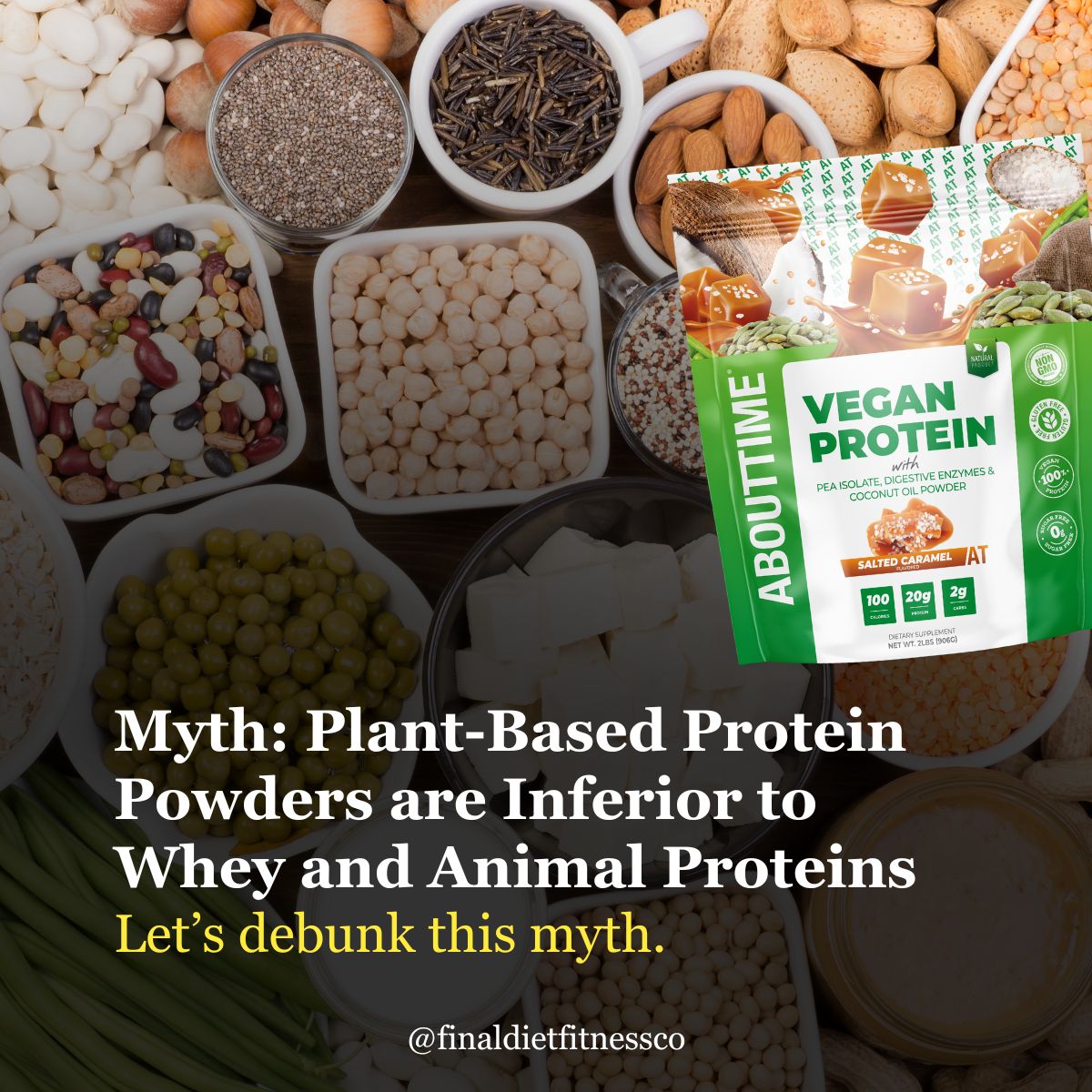
Are Plant-Based Protein Powders Inferior? Let's Break It Down
When it comes to protein powders, whey and casein are often considered the "gold standard." However, the belief that plant-based protein powders are inferior is outdated and unsupported by current research. Here’s why plant proteins hold their own:
1. Protein Quality and Amino Acids
The main argument against plant proteins is their amino acid profile. While some plant proteins lack one or two essential amino acids, blends (like pea and rice) create a complete protein, matching whey in quality.
2. Digestibility
Plant proteins are slightly less digestible compared to whey but are still highly bioavailable. The difference is minimal and won't impact your results if your daily protein intake is adequate.
3. Benefits Beyond Protein
Plant-based powders often come with added nutrients like fiber, antioxidants, and phytonutrients, which promote overall health and recovery.
4. Sustainable and Allergen-Friendly
Plant-based proteins are more environmentally friendly and suitable for those with lactose intolerance or dairy allergies.
5. Comparable Results
Studies show that plant protein can build muscle and aid recovery just as effectively as whey or casein, provided you meet your total protein needs.
The Verdict
Plant-based protein powders are not inferior. They are a viable, effective, and often more inclusive alternative to milk- and animal-based options.












